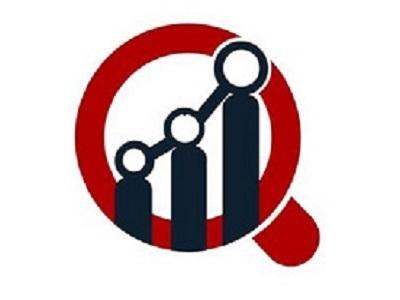South Korea Bunker Fuel Market, Outlook: Post Covid-19 Scenario by 2032

SOUTH KOREA Bunker Fuel Market Overview
The SOUTH KOREA Bunker Fuel Market is a critical component of the maritime industry, providing the lifeblood that powers ships and facilitates global trade. However, as the world grapples with environmental concerns and seeks to reduce greenhouse gas emissions, the SOUTH KOREA Bunker Fuel Market is undergoing a profound transformation. In this article, we will delve into the dynamics of the SOUTH KOREA Bunker Fuel Market, exploring its current state, challenges, and the path toward sustainability.
Bunker fuel Market Size was valued at USD 110.69 billion in 2021. The Bunker fuel industry is projected to grow from USD 158.34 Billion in 2022 to USD 112.90 billion by 2030, exhibiting a compound annual growth rate (CAGR) of 4.32 % during the forecast period (2024 - 2030).
The Current State of the SOUTH KOREA Bunker Fuel Market
Bunker fuel, also known as marine fuel or ship fuel, has traditionally been dominated by heavy and highly polluting fuels, primarily high-sulfur residual fuel oil. These fuels have powered ships for decades due to their cost-effectiveness and availability. However, their high sulfur content and emissions have made them a target for environmental regulations.
The International Maritime Organization (IMO), a United Nations agency responsible for regulating the shipping industry, has imposed stringent regulations to curb emissions from ships. In particular, the IMO's International Maritime Organization (IMO) 2020 regulation mandated a global sulfur cap of 0.5% in bunker fuels, dramatically reducing sulfur emissions from vessels.
Challenges in Transitioning to Sustainable Bunker Fuels
Technical Challenges: Transitioning to cleaner bunker fuels poses technical challenges. New types of fuels, such as low-sulfur marine gas oil and LNG, require modifications to existing ship engines or the adoption of new engine technology. Retrofitting or replacing engines can be expensive and time-consuming.
Supply Chain Complexity: The production and distribution of cleaner bunker fuels are not as established as traditional fuels. This can lead to supply chain disruptions and increased costs, especially in regions where infrastructure for alternative fuels is lacking.
Cost Implications: Cleaner bunker fuels are often more expensive than their high-sulfur counterparts, which can strain the operating budgets of shipping companies. Balancing environmental responsibilities with cost efficiency remains a significant challenge.
The Path Toward Sustainability
LNG as an Alternative: Liquefied Natural Gas (LNG) is gaining momentum as a sustainable alternative to traditional bunker fuels. LNG produces significantly lower emissions of sulfur, nitrogen oxides, and particulate matter. While LNG infrastructure is expanding, its widespread adoption is still limited by infrastructure development and initial investment costs.
Hydrogen and Ammonia: Hydrogen and ammonia are emerging as potential zero-emission bunker fuels. These fuels have the advantage of producing zero carbon emissions when burned, making them environmentally friendly options. However, their production, storage, and distribution on a global scale are significant challenges that need to be overcome.
Biofuels: Biofuels derived from organic materials offer a more sustainable option. They can be blended with conventional bunker fuels, reducing greenhouse gas emissions. However, scaling up biofuel production to meet the demands of the shipping industry remains a challenge.
Energy Efficiency: Improving the energy efficiency of ships is another key aspect of sustainability. Ship design, hull modifications, and operational practices can reduce fuel consumption and emissions. Technologies like wind-assist systems and hybrid propulsion are being explored to enhance efficiency.
Regulatory Compliance: Stricter regulations are pushing the industry towards sustainability. Continued enforcement of emissions regulations, along with potential carbon pricing mechanisms, will incentivize the adoption of cleaner bunker fuels and emission-reduction technologies.
Conclusion
The Bunker Fuel Companies is at a crossroads, facing both challenges and opportunities on its path to sustainability. While transitioning to cleaner fuels presents technical, logistical, and cost challenges, it is essential for the maritime industry to embrace these changes to reduce its environmental impact. Alternative fuels like LNG, hydrogen, and ammonia, along with biofuels, offer promising solutions, but their widespread adoption will require substantial investment and collaboration across the industry.
In the coming years, the SOUTH KOREA Bunker Fuel Market Size will play a pivotal role in the global effort to reduce greenhouse gas emissions from the shipping sector. As regulations continue to evolve and environmental consciousness grows, the industry's ability to adapt and innovate will determine its future success and its contribution to a more sustainable world. The journey towards sustainable bunker fuels is not without its challenges, but it is a voyage that the maritime industry must undertake to ensure a cleaner, greener, and more responsible future.
Key Players
Chemoil Energy Limited (Hong Kong)
Aegean Marine Petroleum Network, Inc. (Switzerland)
World Fuel Services Corporation (US)
Gulf Agency Company Ltd. (Dubai)
Gazpromneft Marine Bunker LLC (Russia)
BP Marine Ltd. (SOUTH KOREA)
Exxon Mobil Corporation (US)
Royal Dutch Shell plc (SOUTH KOREA)
Bunker Holding A/S (Denmark),
About Market Research Future:
At Market Research Future (MRFR), we enable our customers to unravel the complexity of various industries through our Cooked Research Report (CRR), Half-Cooked Research Reports (HCRR), & Consulting Services. MRFR team have supreme objective to provide the optimum quality market research and intelligence services to our clients.
Contact us:
Market Research Future (part of Wantstats Research and Media Private Limited),
99 Hudson Street, 5Th Floor,
New York, New York 10013
United States of America
+1 628 258 0071
Website: https://www.marketresearchfuture.com
- Questions and Answers
- Opinion
- Motivational and Inspiring Story
- Technology
- Live and Let live
- Focus
- Geopolitics
- Military-Arms/Equipment
- Sécurité
- Economy
- Beasts of Nations
- Machine Tools-The “Mother Industry”
- Art
- Causes
- Crafts
- Dance
- Drinks
- Film/Movie
- Fitness
- Food
- Jeux
- Gardening
- Health
- Domicile
- Literature
- Music
- Networking
- Autre
- Party
- Religion
- Shopping
- Sports
- Theater
- Health and Wellness
- News
- Culture

